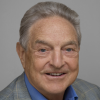The Great Backlash
NEW YORK – In the immediate aftermath of the 2008 global financial crisis, policymakers’ success in preventing the Great Recession from turning into Great Depression II held in check demands for protectionist and inward-looking measures. But now the backlash against globalization – and the freer movement of goods, services, capital, labor, and technology that came with it – has arrived.
This new nationalism takes different economic forms: trade barriers, asset protection, reaction against foreign direct investment, policies favoring domestic workers and firms, anti-immigration measures, state capitalism, and resource nationalism. In the political realm, populist, anti-globalization, anti-immigration, and in some cases outright racist and anti-Semitic parties are on the rise.
These forces loath the alphabet soup of supra-national governance institutions – the EU, the UN, the WTO, and the IMF, among others – that globalization requires. Even the Internet, the epitome of globalization for the past two decades, is at risk of being balkanized as more authoritarian countries – including China, Iran, Turkey, and Russia – seek to restrict access to social media and crack down on free expression.
The main causes of these trends are clear. Anemic economic recovery has provided an opening for populist parties, promoting protectionist policies, to blame foreign trade and foreign workers for the prolonged malaise. Add to this the rise in income and wealth inequality in most countries, and it is no wonder that the perception of a winner-take-all economy that benefits only elites and distorts the political system has become widespread. Nowadays, both advanced economies (like the United States, where unlimited financing of elected officials by financially powerful business interests is simply legalized corruption) and emerging markets (where oligarchs often dominate the economy and the political system) seem to be run for the few.
For the many, by contrast, there has been only secular stagnation, with depressed employment and stagnating wages. The resulting economic insecurity for the working and middle classes is most acute in Europe and the eurozone, where in many countries populist parties – mainly on the far right – outperformed mainstream forces in last weekend’s European Parliament election. As in the 1930’s, when the Great Depression gave rise to authoritarian governments in Italy, Germany, and Spain, a similar trend now may be underway.
If income and job growth do not pick up soon, populist parties may come closer to power at the national level in Europe, with anti-EU sentiments stalling the process of European economic and political integration. Worse, the eurozone may again be at risk: some countries (the United Kingdom) may exit the EU; others (the UK, Spain, and Belgium) eventually may break up.
Even in the US, the economic insecurity of a vast white underclass that feels threatened by immigration and global trade can be seen in the rising influence of the extreme right and Tea Party factions of the Republican Party. These groups are characterized by economic nativism, anti-immigration and protectionist leanings, religious fanaticism, and geopolitical isolationism.
A variant of this dynamic can be seen in Russia and many parts of Eastern Europe and Central Asia, where the fall of the Berlin Wall did not usher in democracy, economic liberalization, and rapid output growth. Instead, nationalist and authoritarian regimes have been in power for most of the past quarter-century, pursuing state-capitalist growth models that ensure only mediocre economic performance. In this context, Russian President Vladimir Putin’s destabilization of Ukraine cannot be separated from his dream of leading a “Eurasian Union” – a thinly disguised effort to recreate the former Soviet Union.
In Asia, too, nationalism is resurgent. New leaders in China, Japan, South Korea, and now India are political nationalists in regions where territorial disputes remain serious and long-held historical grievances fester. These leaders – as well as those in Thailand, Malaysia, and Indonesia, who are moving in a similar nationalist direction – must address major structural-reform challenges if they are to revive falling economic growth and, in the case of emerging markets, avoid a middle-income trap. Economic failure could fuel further nationalist, xenophobic tendencies – and even trigger military conflict.
Meanwhile, the Middle East remains a region mired in backwardness. The Arab Spring – triggered by slow growth, high youth unemployment, and widespread economic desperation – has given way to a long winter in Egypt and Libya, where the alternatives are a return to authoritarian strongmen and political chaos. In Syria and Yemen, there is civil war; Lebanon and Iraq could face a similar fate; Iran is both unstable and dangerous to others; and Afghanistan and Pakistan look increasingly like failed states.
In all of these cases, economic failure and a lack of opportunities and hope for the poor and young are fueling political and religious extremism, resentment of the West and, in some cases, outright terrorism.
In the 1930’s, the failure to prevent the Great Depression empowered authoritarian regimes in Europe and Asia, eventually leading to World War II. This time, the damage caused by the Great Recession is subjecting most advanced economies to secular stagnation and creating major structural growth challenges for emerging markets.
This is ideal terrain for economic and political nationalism to take root and flourish. Today’s backlash against trade and globalization should be viewed in the context of what, as we know from experience, could come next.
Copyright: Project Syndicate, 2014.
www.project-syndicate.org
This article is brought to you by Project Syndicate that is a not for profit organization.
Project Syndicate brings original, engaging, and thought-provoking commentaries by esteemed leaders and thinkers from around the world to readers everywhere. By offering incisive perspectives on our changing world from those who are shaping its economics, politics, science, and culture, Project Syndicate has created an unrivalled venue for informed public debate. Please see: www.project-syndicate.org.
Should you want to support Project Syndicate you can do it by using the PayPal icon below. Your donation is paid to Project Syndicate in full after PayPal has deducted its transaction fee. Facts & Arts neither receives information about your donation nor a commission.





















